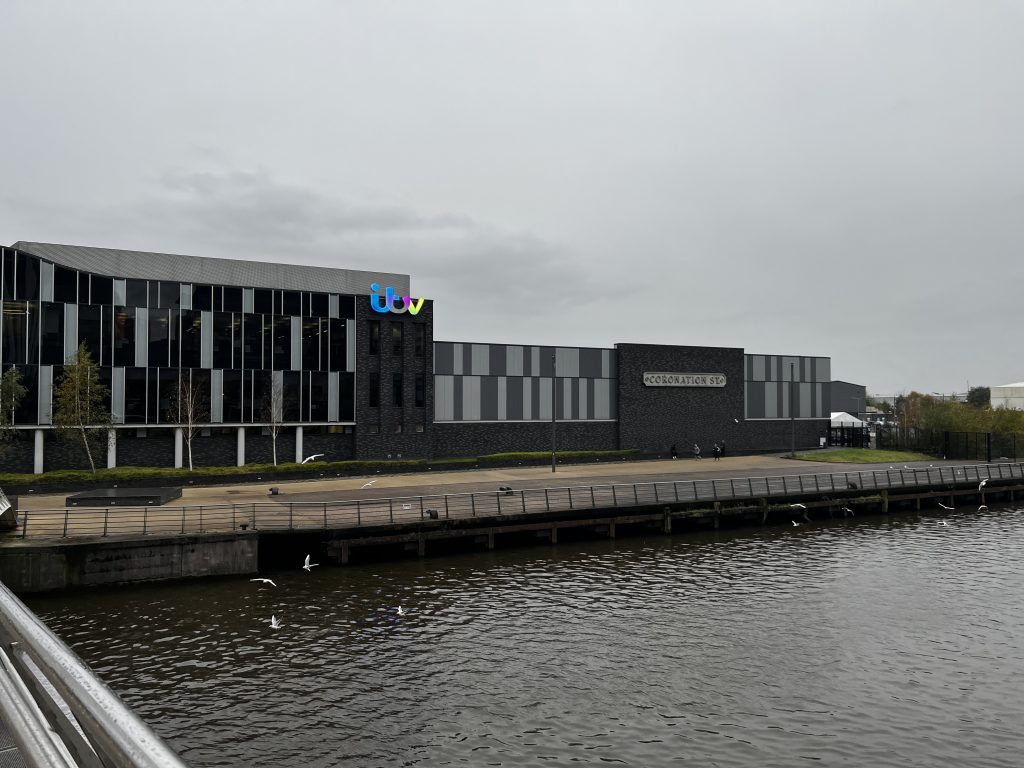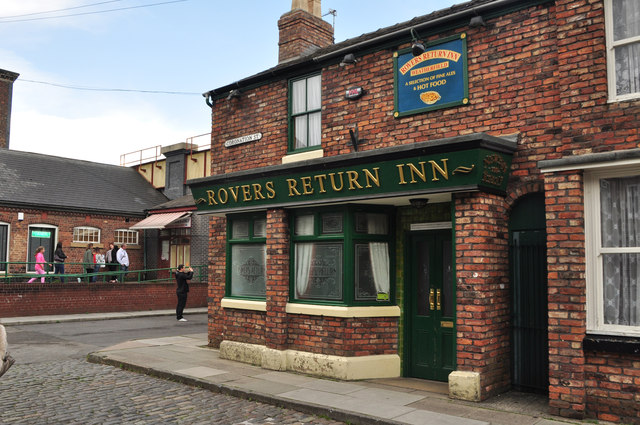
In honour of World Television Day, SalfordNow spoke to the Chief Press Officer of Salford-based show, Coronation Street about the importance of real-life storylines.
MediaCity is home to the set of Coronation Street, the world’s longest running television soap opera.
Airing its first episode on 9th December 1960, Coronation Street has been one of the world’s most successful television shows, entertaining generations and covering stories that have had great impact on communities across the country.
TV has been entertaining people across the world for almost a century but there’s much more to it than what you see on the screen.
Alison Sinclair is the Chief Press Officer of the world’s longest scripted television show. She is fast approaching her 30th year on the programme after a career in journalism and PR.
She said: “As a former journalist I love storytelling. So for me, whether it’s telling a story about something that’s happened in the news, or telling a story in a soap or in a drama. For me, as a PR it is about getting people engaged in those stories and talking about them.
“However, entertainment can be a huge form of education. Because people will watch television and take in what they’re watching and not even necessarily realise that they are being educated.
“It’s something that’s being done surreptitiously, because you’ve got to remember, particularly with a drama and a soap, even if you are looking at hard hitting issues.
“At the end of the day, people are watching it to be entertained and to be taken out, you know, away from what they’re dealing with on a daily basis. That doesn’t mean that it always has to be light and funny.”

Image by Lewis Clarke
Television has been shown to break barriers and Corrie is no stranger to that. They have included some very hard-hitting stories that have had large societal impact, with episodes leading to more reporting by victims of domestic abuse and rape.
“When we did Aidan’s suicide, which was a hugely moving story, the messages that we got and the stories we got from people who had sat down and spoken to the men in their lives about how they were feeling. And we’ve had messages from people who said that people’s lives were saved through that because of conversations that then started at home.
“When we did the male rape storyline with David, Survivors, Manchester, who we worked with reported a massive spike in calls to help lines from men who had been in situations like that and hadn’t reported it, and we started talking about it because they’d seen it.”
Since it’s early days, television has been used to tell real life stories and reflect our communities using fictional but relatable characters.
Ms Sinclair followed: “We were one of the first soaps to have a transgender character with Hayley, and at the time, it led to discussions in Parliament about the law, because we made a big issue about the fact that Roy and Hayley couldn’t legally get married.
“The actors both anecdotally told the stories of people of the older generation coming up and saying, why can’t you get married? I don’t understand. And it was really sort of educating people at that time now, there’s a lot of transgender characters in lots of different shows, and it’s a much more open topic.”
Television goes much further beyond a screen. Its influence on the real world has changed lives from one’s personal experiences, to new laws being passed. Its ability to entertain and not shy away from real, hard-hitting stories make it the great success that it remains to be today.















Recent Comments